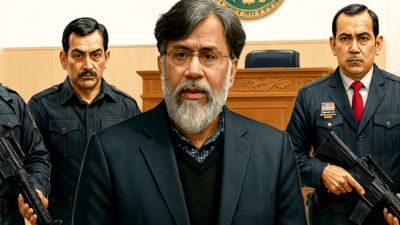NEW DELHI: Tahawwur Hussain Rana, one of the key masterminds behind the 26/11 Mumbai terror attacks, is currently in transit to India following his extradition from the United States.
Top government sources told ANI that two crucial factors helped secure his extradition: the legal rebuttal of the double jeopardy claim and India’s diplomatic efforts.
The first factor was India’s legal argument against the principle of double jeopardy. Represented by a strong team of legal experts, Indian authorities convinced US officials that the protection against double jeopardy is based on the specific elements of a crime, not merely the defendant’s conduct.
Since Rana has never been tried in India under the Unlawful Activities (Prevention) Act, prosecuting him under this law would not violate the double jeopardy clause.
Rana’s legal team approached the US Supreme Court to halt his extradition, citing the double jeopardy defence. However, the US authorities ultimately sided with India’s interpretation, clearing the path for his transfer.
The second factor was India’s diplomatic strength. Sources close to the extradition process said India’s global standing, its strong diplomatic footprint, and cordial relations with the US helped navigate legal complexities and fast-track Rana’s extradition.
Rana, a Pakistani-Canadian national, was earlier convicted in the US for aiding Lashkar-e-Taiba, the terror group responsible for the 2008 attacks that left more than 174 people dead.
In a related development, Delhi’s Patiala House Court has received case files from Mumbai naming Rana and David Coleman Headley as accused, following a request by the National Investigation Agency earlier this year.
Rana’s arrival in India marks a key milestone in the country’s pursuit of justice for the victims of the Mumbai attacks. The Ministry of Home Affairs has appointed senior advocate Narender Mann as the special public prosecutor to lead the trial on behalf of the NIA.
(With inputs from ANI)


